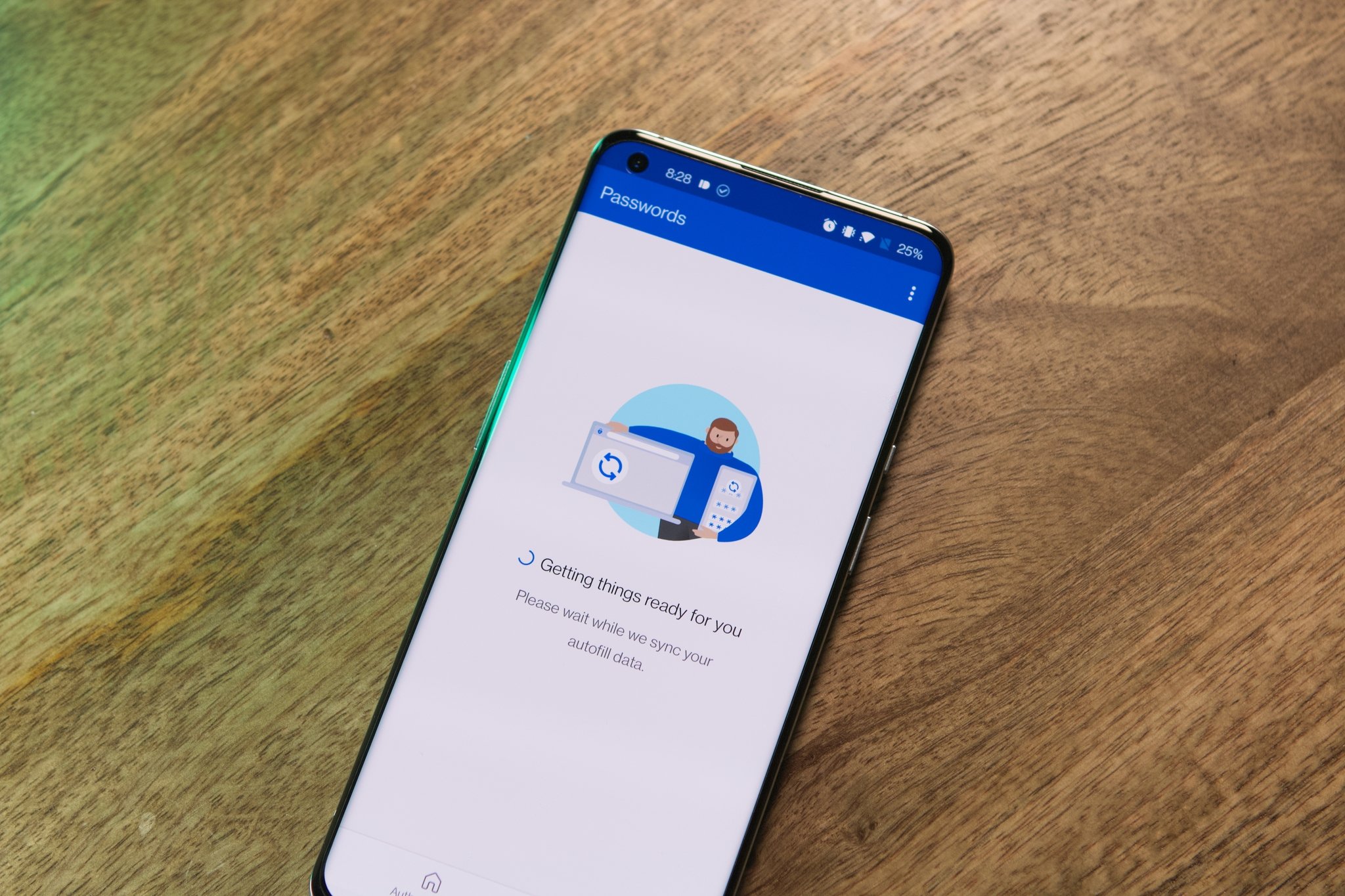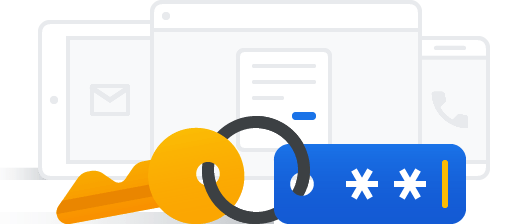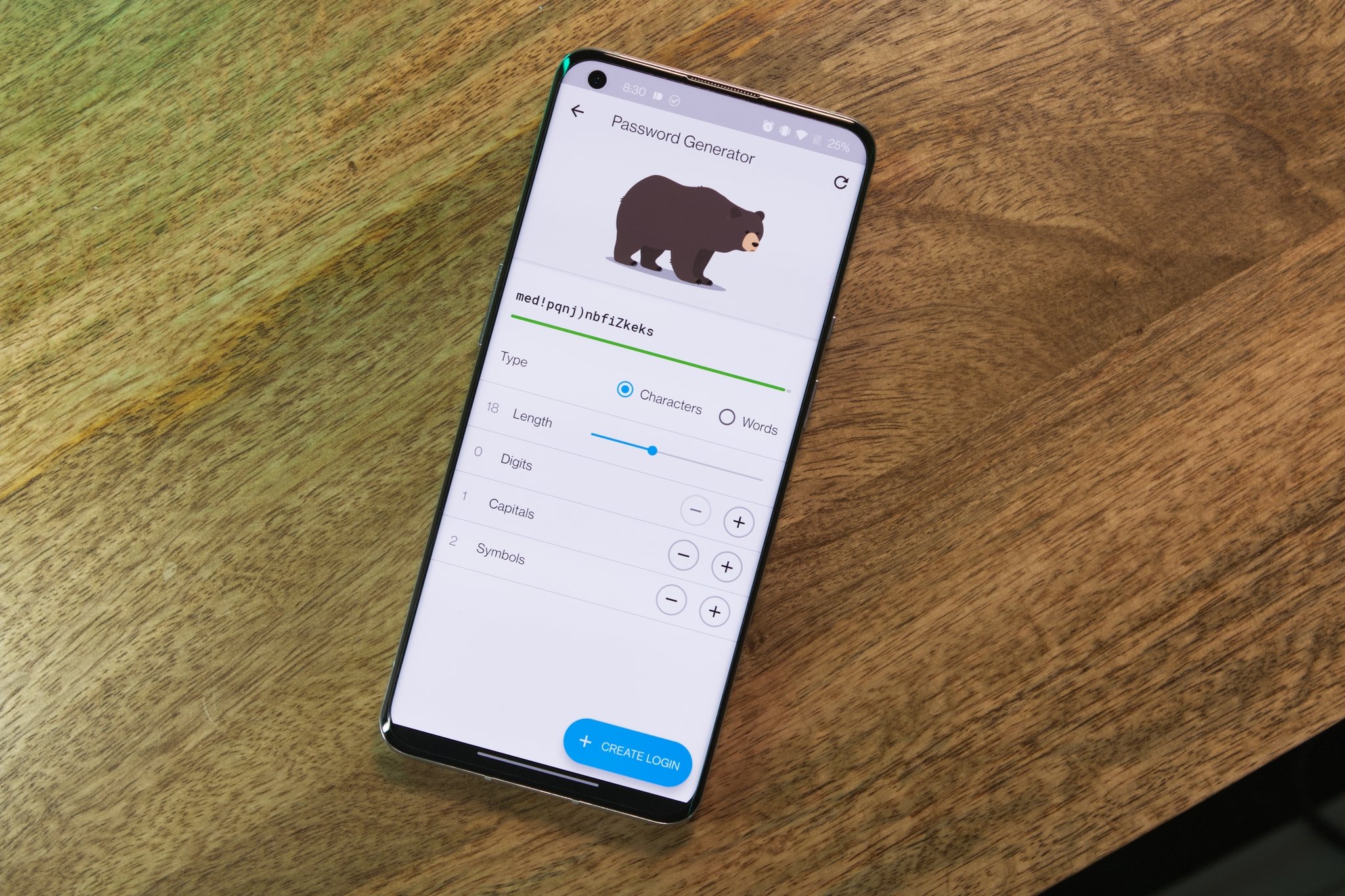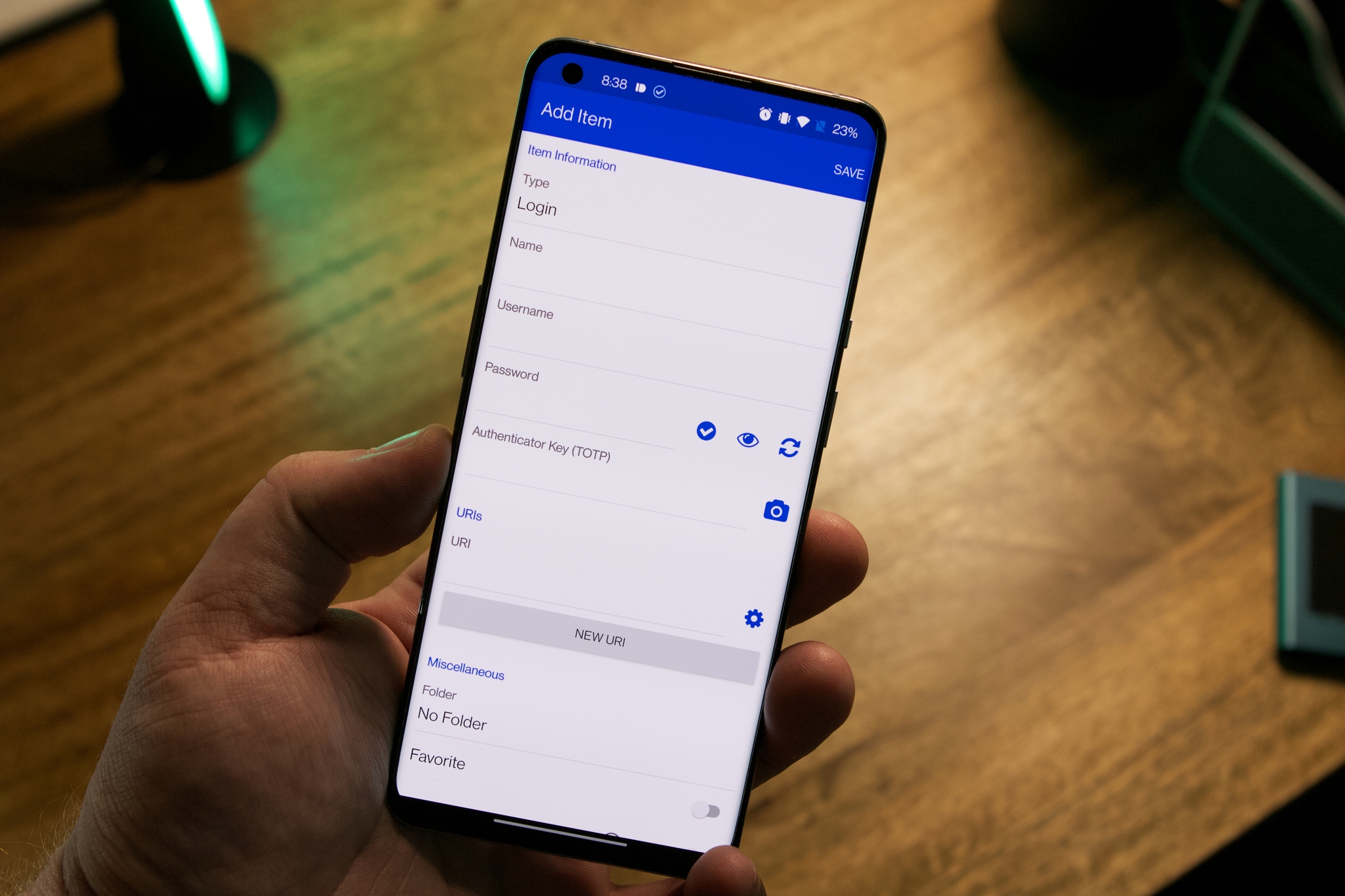Shred the paper password manager
In an age where passwords are everywhere and you absolutely cannot remember them all, password managers are a necessary evil. The one you pick needs to balance price, features, design, and UI — and of course, it needs to be secure.
If your passwords get compromised in a server penetration or an encryption error, then you have to change your passwords for everything. These managers are the best of the bunch, with each having unique strengths and feature flavorings in their desire to stand out and deliver the most secure, satisfactory experience you can have.
The top 3 apps
More options
These are the best Android password managers
1Password has taken a long, winding road to get to Android prominence, but the once Apple-only app is now intuitive and at feature-parity with its iOS counterpart.
If you're looking for a beautifully-designed password manager, then it doesn't get much better than Dashlane. The app has been around for years and has seen its fair share of design changes, but the latest of which is arguably the best, plus it's pretty darn great at managing your passwords.
It's tough to ignore LastPass even with changes to the free version of the app. While the newly-introduced limitations are a source of frustration, LastPass Premium is still a viable option for many.
1. 1Password
The great thing about 1Password is its simplicity: like all options in this list, the app ties into Android's built-in password manager SDK, but if an app doesn't support it for whatever reason, 1Password has its own keyboard that lets you quickly copy-and-paste a username and password into the appropriate field.
1Password supports tags and groups; it can be used to generate random strong passwords or 2FA codes; it supports multiple vaults, one for personal and one for a family or a team, and switches between them seamlessly; it's fast to load and rarely crashes. 1Password also supports U2F keys now, adding an extra level of protection to your account and your passwords.
According to our managing editor Daniel Bader, "1Password does everything well and is worth my annual subscription. In fact, for $36 a year, it's a bargain."
Easiest to use
1Password
1Password is a password manager that fell behind a few years ago, but it's surged to become one of the easiest-to-use and well-featured password managers around. Its $36 per year membership is competitive, and while 1Password does have trial periods, you must pay to play.
$36 per year (Single user Premium) $60 per year (5-user Family Premium)
2. Dashlane
While 1Password is a favorite around here, Dashlane comes in a close second. The service features a beautifully-designed application with an easy-to-navigate interface so you can find the passwords you need, whenever you are prompted. There are apps for just about every platform, so you'll never be without your passwords.
The free version of Dashlane will be sufficient for some, but you will likely begin butting up against the limitations pretty quickly. The biggest limitation is that you can only use Dashlane to store up to 50 passwords at a time. Considering how many different logins and accounts we all have, 50 may seem like a lot, but the truth is that it's really just a drop in the bucket. While the free version is limited to storing just 50 passwords, Dashlane's Essentials plan offers unlimited password storage, along with being able to use the service with two devices instead of one.
If you want to replace the likes of LastPass or want to dive into a password manager for the first time, then Dashlane Premium is the way to go. The company offers a 30-day free trial so you can get your feet wet and everything organized. Then, you'll be able to use the app on an unlimited number of devices, without any limits as to how many passwords can be stored. Plus, you'll be provided with a VPN for WiFi protection, and will receive alerts from Dashlane's Dark Web Monitoring service.
Upgrade pick
Dashlane
Dashlane is first and foremost a well-designed, easy-to-use password manager, but these days it's also something of a one-stop-shopping experience for online data security. Dashlane Premium comes with a VPN, separate secure browser, and Dark Web Monitoring to alert you if your info shows up in a data-dump.
Free (50 passwords, single device) $4 per month (Essentials) $7 per month (Premium) $9 per month (Family)
3. LastPass
LastPass allows you to just remember one password to access your data on a new device: your master password. Unlike 1Password and other password managers that require you to also keep track of an access key, LastPass makes it easy to sign into a new device and relies on your email for secondary authentication. It's possible to set specific passwords to only be visible to particular identities, which is incredibly useful when having a shared family or team account, and you can create – and store – secure passwords with ease.
But changes to the free version of LastPass could leave you questioning whether it's time to switch to a different password service. Recently, the company outlined plans to make it so users will only be able to use the LastPass app on mobile devices, or computers. Starting in March of 2021, if you sign into LastPass on your fancy new Android phone, then your 'active device type" will be locked into mobile devices. And if you opt for signing into LastPass free on your computer, then your "active device type" will be locked to whatever computers you use.
Those who are thinking that they would just be able to keep switching between mobile and computer device types will be disappointed. LastPass is providing Free users just three opportunities to switch, before being forced to move up to LastPass Premium. It's not the end of the world, but for an app that was one of our favorites due to its superb free options, these changes feel like a punch in the gut.
Slightly hampered
LastPass
While the free version of LastPass is getting hampered a bit, the service itself is not changing. It's still one of the best options for keeping all of your passwords stored, even if you have to opt into LastPass Premium.
Free (Single Device) $3 per month billed annually (Premium) $4 per month billed annually (Families)
Other great options
Though they didn't quite make it into our top three, here are some other excellent password manager apps for you to try out.
Enpass
The most important parts of any password manager are security and convenience. Enpass offers the same level of password vault security as the rest of the competition, but there's an added layer of security in its model because it doesn't store any of your data itself — you choose where to store and sync it, so you can save it in Google Drive or Dropbox. That adds a little more overhead for you at first, but you can have the peace of mind of knowing you control the vault's location.
Then there's convenience. Of course, Enpass has apps for all of the major platforms, and your cloud service of choice can provide syncing, but there's nothing more convenient than never having a recurring payment just to keep your password manager around. Enpass is a one-time purchase, not a subscription, so you buy it and own it. That's it.
One-time purchase
Enpass
Don't think you should have to pay every month — or every year — just to keep your passwords in one secure location? Enpass is for you.
Free (20 passwords, single device) $24 per Year (Individual) $36 per Year (Family) $80 (One-time)
Microsoft Authenticator
It has been a slow build up over the last few years, but Microsoft has been on much more of a focused path with its apps and services. Edge is already one of the best Android browsers or the computer now that it is using Chromium, and now Microsoft has its eyes set on helping you keep your information secure. Over the last few months, Microsoft Authenticator has been transformed from a basic 2FA app into a more robust password manager.
You are able to import your passwords from Chrome with ease, and can use Authenticator to access those passwords, or create new ones. It's a pretty easy and straightforward solution to managing your passwords. That being said, you won't find an overly-gorgeous design while using the app, but hey, it's completely free and you can store as many passwords as you want.
New Contender
Microsoft Authenticator
With Microsoft Authenticator, you can do so much more than generate your 2FA codes. The app has been updated with a free-to-use password manager that works seamlessly on your phone and with the Microsoft Edge browser.
Google Passwords
Instead of masquerading as a traditional application, Google Password Manager is built right-into your Google account already. Since we're already using Android and downloading apps, that means that you already have access to this manager. Whenever you create a new account, or need to update a password, Google will provide a bit of help so you can generate new logins that can't be easily guessed.
There's a lot of great password managers out there that bring a lot more control and multi-layer security to this affair, but our writer Ara Wagoner hasn't felt the need to pay for any of them since the default Autofill from Google gets the job done just fine:
I'm loathed to store most of my passwords anywhere, but I have to admit that I am a super-forgetful person, and so even though remembering a Master Key is easier than remembering hundreds of individual passwords, I don't want to hassle with it. The most important of my passwords are properly hidden outside any one system, and the rest sit in Google Passwords behind the same Master Key most of my life uses: my 2-factor-enabled Google Account password.
Built-in basics
Google Passwords
Admittedly, this isn't the most secure password manager in existence, but it still requires you to enter your Google account password to view or edit the data on the Google Passwords website or in your Google Account settings.
RememBear
Just looking at the logo, you may sense a feeling of familiarity with RememBear. Well, if you've ever looked into the best VPN services, then you'll see the resemblance with TunnelBear. RememBear comes from the same company, and is available on all of your devices. You can use browser extensions inside of Chrome, Firefox, or Safari on your computer, or just use the mobile app on your smartphone or tablet of choice.
The app itself provides end-to-end encryption, while being able to save and help you create passwords and logins. Plus, you can even save your credit card information for easy access when your wallet is in the other room. Or maybe you want to take down some notes, but don't want to keep that information in something like Google Keep. Fire up RememBear, jot down what you need to remember, and keep it protected with one of the best password managers for Android.
Puns and panache
RememBear
TunnelBear is one of the cuter and more reliable VPNs on the market, and in late 2017, it debuted a password manager called RememBear — because it was too good a bear pun to pass up. This manager is well-designed, easy to manage, and if you only want to use it on one device, it's absolutely free to start.
Free (one-device, no sync/backup) $6 per month (single-user Premium) at RememBear
NordPass
Keeping with the trend of VPN apps making password managers, that brings us to NordPass. As the name suggests, this is just one of the offerings from NordVPN, which also is one of the best Android VPN apps. Easily import your passwords from your browser, or using a CSV file if you happen to be coming from another password manager.
NordPass is free to use, although, you'll be limited to making use of it on a single device. If you want to have access to your passwords on all of your devices, then you'll have to pony up around $1.50 per month. But with this, you'll be able to have six active devices at a single time, along with a Password Health scanner to make sure that your passwords are still strong. Plus, with NordPass' Data Breach Scanner, the app will notify you if your password or login were found in a security breach so you can change the password quickly.
Not just VPNs
NordPass
NordPass is an intriguing option, especially if you are already using NordVPN for your VPN needs. There are no limitations to the number of passwords that can be stored with NordPass, and you'll be notified if your information appears in a security breach.
Free (one-device) at NordPass $2 per month (single-user Premium) at NordPass From $4 per month (Family) at NordPass
Bitwarden
If you're looking for a password manager that is a bit more robust than what Google and Microsoft has to offer for free options, then Bitwarden is the way to go. The service allows for unlimited password storage with a free account, while providing the ability to self-host your passwords and generating new passwords. Then, all of your passwords can sync across any devices that you want to use Bitwarden with.
Turning things up a notch, Bitwarden Premium provides everything you can get in the free version, along with some extra goodies. You'll get 1GB of encrypted file storage, so you can store images or notes, along with Bitwarden Authenticator. Bitwarden Premium even supports two-step authentication from integration with the YubiKey if that's your kind of thing.
Open Source Protection
Bitwarden
Bitwarden contains many of the features that you would expect from a password manager, such as the ability to auto-fill logins or generate new passwords. But the best part about Bitwarden is that you don't need to sign up for Premium to make the most out of it.
Free (Unlimited Vault Items) From $10 per year (Premium) From $40 per year (Family)





0 Response to "You Can See More: You should DEFINITELY be using one of these password managers"
Post a Comment